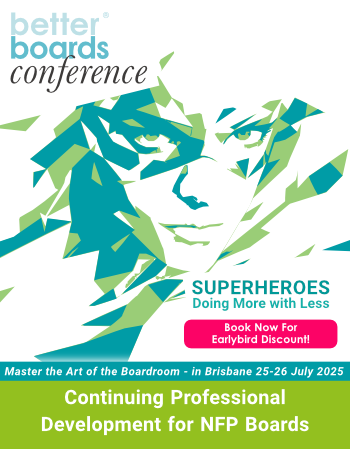leadership
Top Tips For Developing Collaborative Leaders
Published: July 4, 2019
Read Time: 4 minutes

To illustrate how workforce requirements are changing, the DDI Global Leadership Survey (2018) found that collaborating within and across organisational boundaries is regarded by CEOs as a premium capability. Working collaboratively is harder than your leaders might think because it’s about balancing common agendas with individual goals.
For example, when helping leaders from grassroots community organisations, not-for-profits, government departments and the business sector come together in a regional New South Wales town to pursue indigenous employment outcomes, we first focused on articulating the common goal and developing collaborative ways of working, which contributed to its success.
Social capital underpins successful collaborations
Social capital is the invisible glue that makes communities strong and a group of collaborators, whether they be people, teams or organisations, is a community in itself, therefore the same principles apply. It is built on trust, mutual reciprocity and a shared understanding of social norms, and this is what your leaders need to build when they are required to work collaboratively.
There are many day-to-day situations in which their collaboration skills might be tested, such as coordinating activities, cooperating with other parts of your organisation, participating in cross-functional project teams, developing partnerships or working with stakeholders.
Collaboration is also one of those ‘things’ we know our leaders need to be good at, however, it’s much harder to explain the practical steps required to make improvements. With this in mind, here are three of the seven areas I focus on when developing collaborative leaders:
1. Overcoming competing interests
Assuming your leaders already know the common goal their group is working towards, their attention should turn to managing tensions between individual and group interests. It can be hard giving up short term gains for the longer term betterment of a larger, collaborative group, so your leaders need to instil a mindset of win-win and mutuality. In his novel The Three Musketeers, Alexander Dumas penned a catch cry that is very instructive:
All for one and one for all, united we stand divided we fall.
Overcoming competing interests will be a big mindset shift for leaders who’ve lived in a “command and control” world, so don’t assume that they all have the willingness or capacity to come on board. Tough conversations may be required.
On a recent assignment with a large not-for-profit, we devised a set of values and behaviours that described “the way we want to work”, which was supported by the board, executives and leaders right across the organisation. They now need to continually and consistently reinforce this charter through their own actions, calling out situations when it’s not working and praising team members who show improvement. Hard-coding these expectations into key performance indicators is part of their action plan.
2. Language ladders
How do you gauge the success of your leaders in building collaborative projects or teams? One of the best markers is the type of language used across the entire group. When people are disengaged you’ll hear well-worn clichés like “it’s not my problem” or “we’ve always done it this way”. Some people within groups think they are being collaborative but remain overtly competitive. They may be saying “I’m doing my bit but others are letting us down”.
You have reached collaborative nirvana when the group’s language transforms to, “This is great. We’re taking big strides together.”
Listen to your leaders and the people they work with and do a quick mental audit of the language they use; it will be very telling. You may come across sub-groups that use different languages and consistency is the ultimate aim.
3. Accountitude (not a typo)
Your leaders also need to cultivate a culture of accountability and can-do attitude.
In collaborative situations, the impact of each person’s attitude is amplified because groups are only as strong as their weakest links. They must be held accountable for their behaviours and actions. In Good to Great, Jim Collins talks about prioritising positive attitude over technical skills and proactively “managing” those who fall outside of an acceptable zone.
To do great work, they must be willing and able to respectfully challenge other group members when it really matters, avoid groupthink and not become overly reliant on consensus decision making.
The ultimate measure of a man is not where he stands in moments of comfort and convenience, but where he stands at times of challenge and controversy – Martin Luther King Jr
A key tip for you is to ask your leaders to talk through collaborative projects and be prepared to play a coaching or mentoring role in improving their “accountitude”.
Top tips for collaborative leadership
Collaborative leadership is as much an art as it is science, however, I trust these tips will help you in guiding your leaders. To recap: having a mindset of mutuality is essential, language is a good marker for progress, and leaders should cultivate a culture of “accountitude”. There’s a lot to gain if your leaders are on song and a lot to lose if they fall short.
Share this Article
Recommended Reading
Recommended Viewing
Author
-
Purpose, Performance
& Innovation Speaker
- About
-
Phil Preston is a purpose strategist who helps leaders, teams and organisations turn ripples into waves of positive change through keynotes, presentations, workshops and programs. You can find out more about him via his LinkedIn profile or website.
Found this article useful or informative?
Join 5,000+ not-for-profit & for-purpose directors receiving the latest insights on governance and leadership.
Receive a free e-book on improving your board decisions when you subscribe.
Unsubscribe anytime. We care about your privacy - read our Privacy Policy .










